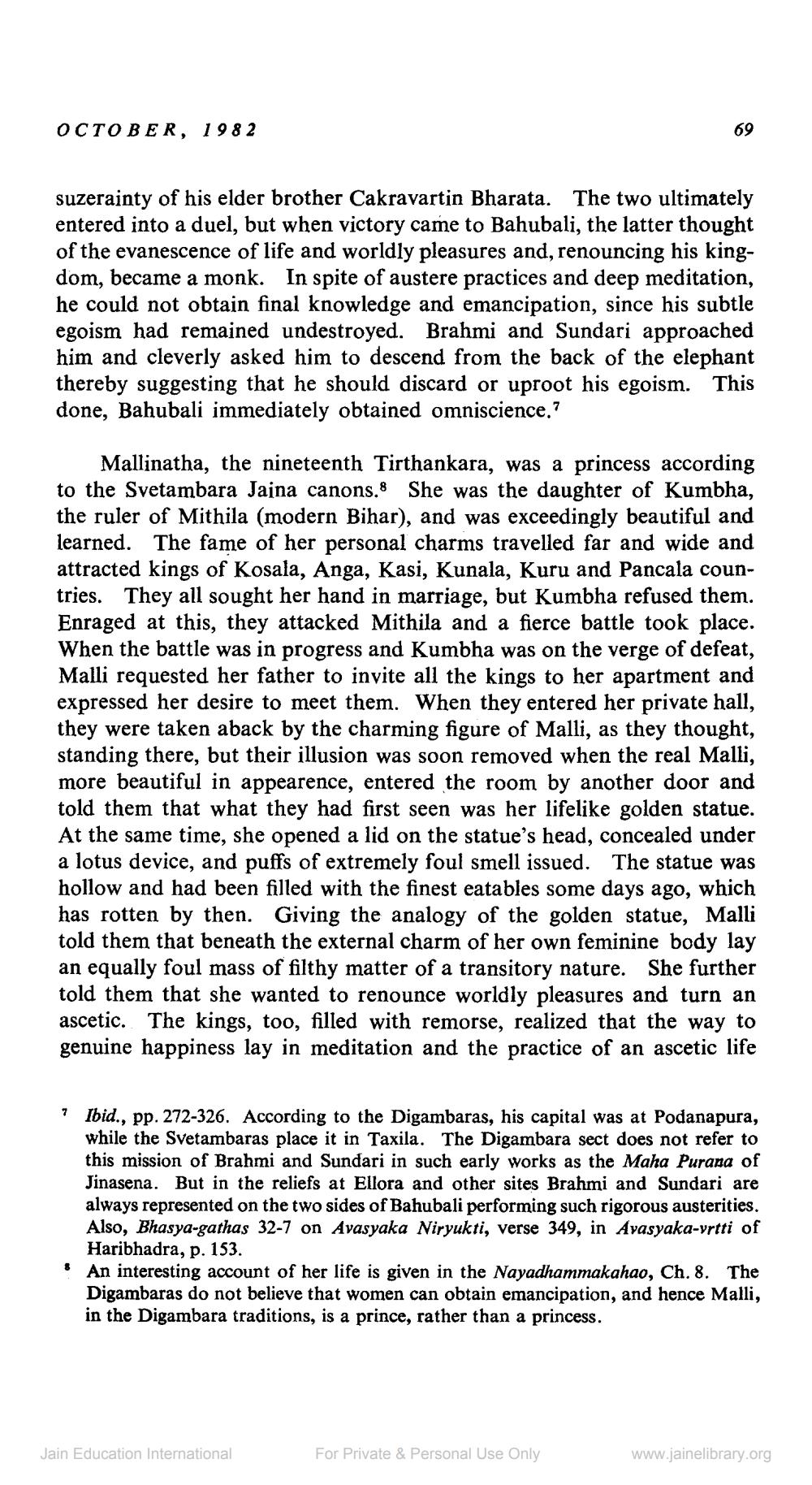________________
OCTOBER, 1982
suzerainty of his elder brother Cakravartin Bharata. The two ultimately entered into a duel, but when victory came to Bahubali, the latter thought of the evanescence of life and worldly pleasures and, renouncing his kingdom, became a monk. In spite of austere practices and deep meditation,
tot obtain final knowledge and emancipation, since his subtle egoism had remained undestroyed. Brahmi and Sundari approached him and cleverly asked him to descend from the back of the elephant thereby suggesting that he should discard or uproot his egoism. This done, Bahubali immediately obtained omniscience.?
Mallinatha, the nineteenth Tirthankara, was a princess according to the Svetambara Jajna canons. She was the daughter of Kumbha, the ruler of Mithila (modern Bihar), and was exceedingly beautiful and learned. The fame of her personal charms travelled far and wide and attracted kings of Kosala, Anga, Kasi, Kunala, Kuru and Pancala countries. They all sought her hand in marriage, but Kumbha refused them. Enraged at this, they attacked Mithila and a fierce battle took place. When the battle was in progress and Kumbha was on the verge of defeat, Malli requested her father to invite all the kings to her apartment and expressed her desire to meet them. When they entered her private hall, they were taken aback by the charming figure of Malli, as they thought, standing there, but their illusion was soon removed when the real Malli, more beautiful in appearence, entered the room by another door and told them that what they had first seen was her lifelike golden statue. At the same time, she opened a lid on the statue's head, concealed under a lotus device, and puffs of extremely foul smell issued. The statue was hollow and had been filled with the finest eatables some days ago, which has rotten by then. Giving the analogy of the golden statue, Malli told them that beneath the external charm of her own feminine body 1 an equally foul mass of filthy matter of a transitory nature. She further told them that she wanted to renounce worldly pleasures and turn an ascetic. The kings, too, filled with remorse, realized that the way to genuine happiness lay in meditation and the practice of an ascetic life
Ibid., pp. 272-326. According to the Digambaras, his capital was at Podanapura, while the Svetambaras place it in Taxila. The Digambara sect does not refer to this mission of Brahmi and Sundari in such early works as the Maha Purana of Jinasena. But in the reliefs at Ellora and other sites Brahmi and Sundari are always represented on the two sides of Bahubali performing such rigorous austerities. Also, Bhasya-gathas 32-7 on Avasyaka Niryukti, verse 349, in Avasyaka-yrtti of
Haribhadra, p. 153. $ An interesting account of her life is given in the Nayadhammakahao, Ch.8. The
Digambaras do not believe that women can obtain emancipation, and hence Malli, in the Digambara traditions, is a prince, rather than a princess.
153
Jain Education International
For Private & Personal Use Only
www.jainelibrary.org




